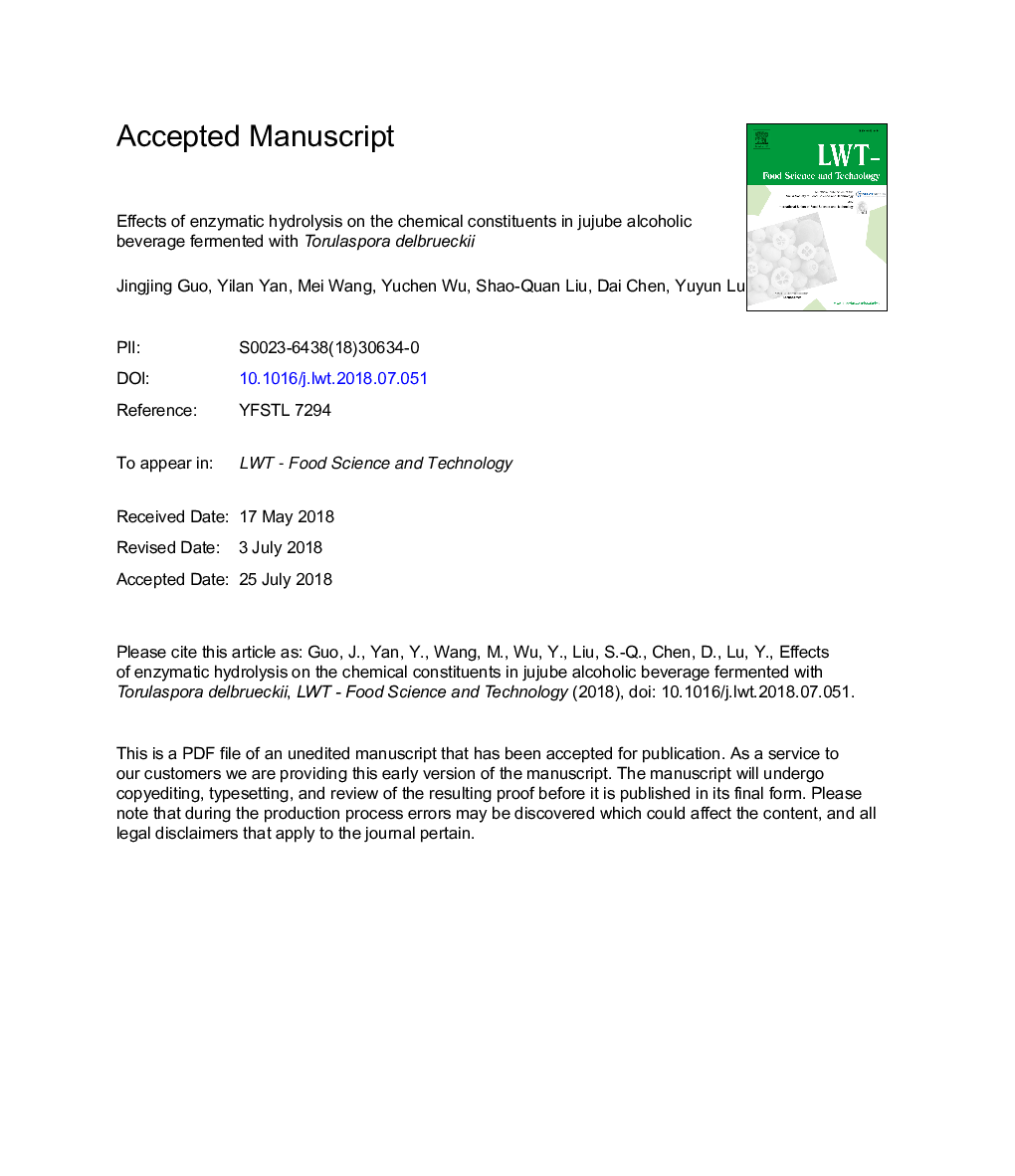| Article ID | Journal | Published Year | Pages | File Type |
|---|---|---|---|---|
| 8890270 | LWT - Food Science and Technology | 2018 | 32 Pages |
Abstract
This study evaluated the chemical and volatile composition of jujube alcoholic beverage fermented with Torulaspora delbrueckii after enzymatic hydrolysis treatment. The results showed that enzymatic hydrolysis first and then alcoholic fermentation (EHAF) significantly improved the growth of T. delbrueckii with higher amount of final yeast population (9.67â¯Ãâ¯107â¯CFU/mL) than that of alcoholic fermentation control (AFC) treatment (5.02â¯Ãâ¯107â¯CFU/mL). Additionally, the enzymatic hydrolysis significantly improved the contents of total saponins and nitrogen sources (ammonia and amino acids), but decreased the production of acetic acid. Furthermore, EHAF treatment significantly promoted the productions of ethanol, various esters (including methyl esters, ethyl esters and isoamyl esters), which are beneficial for flavor complexity. This study suggested that EHAF treatment could significantly improve the production of aroma compounds and this strategy might be a useful way in fruit alcoholic beverage fermented with T. delbrueckii.
Related Topics
Life Sciences
Agricultural and Biological Sciences
Food Science
Authors
Jingjing Guo, Yilan Yan, Mei Wang, Yuchen Wu, Shao-Quan Liu, Dai Chen, Yuyun Lu,
